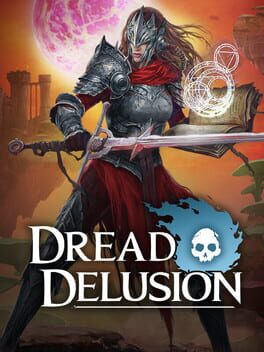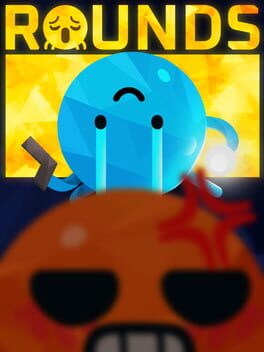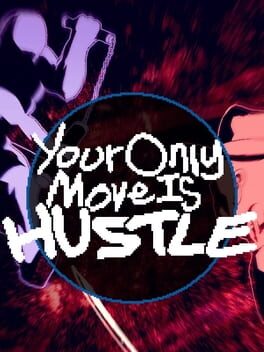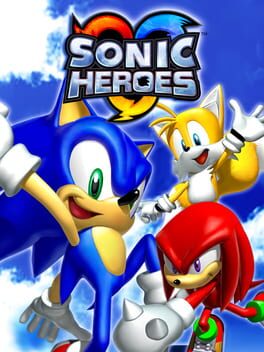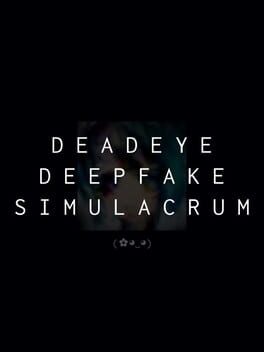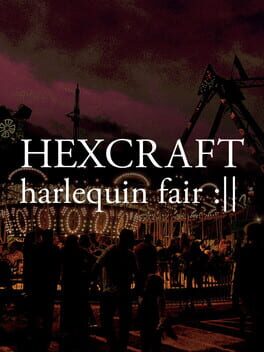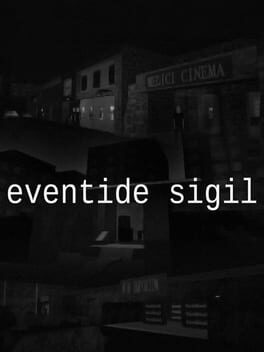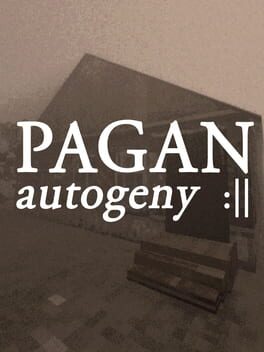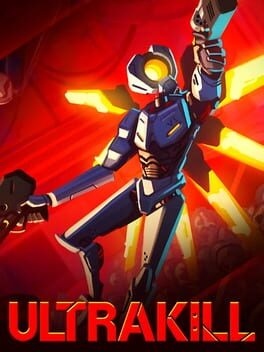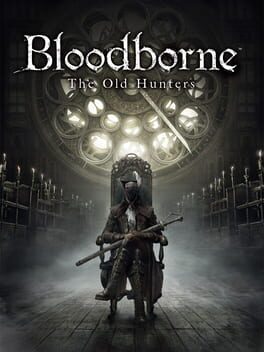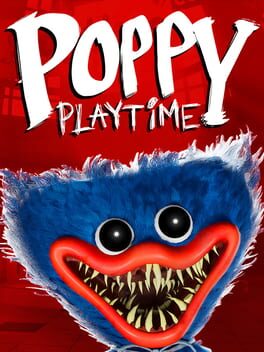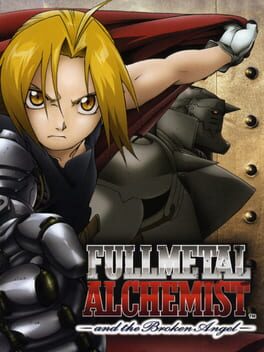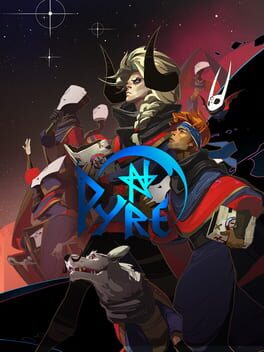SlimeLord
2022
I originally had some pretty big complaints with this, mostly amounting to a lack of actual role-playing depth and pretty atrocious combat, but upon reflection (and upon playing most of what's already available) I think that's a somewhat unfair assessment. I think that Dread Delusion almost suffers a little from how heavily it wears it's influences on it sleeve, and that's not really the game's fault, but I went into this expecting it to be "indie Morrowind", when in truth it like, almost borrows more mechanically from Breath of the Wild? Don't get me wrong, there's a lot of old-school TES in here- the creatively designed world, the allusion to a grand history you might not be able to piece together right away, the perspective and general visual aesthetic- but what's really emphasized, above all else, is exploration and discovery. Not even nook or cranny holds something truly fascinating, but just like in BotW there's always something peppering the landscape, enticing you to seek further. Pockets of compelling quests or locales are dotted around the map, but between them are less major locations, puzzles and collectables to keep the world from feeling empty. There's a very real sense of discovery and awe here once it "clicks" and the full scope of the (currently unfinished) world hits you. As of now, I'd say this is still something really, truly special. I can't wait to see where it goes next.
2021
2003
On your first time typing "succ" into a computer terminal to steal data from it, you will roll your eyes or chuckle a little.
On your eightieth time typing "succ" into a computer terminal to steal data from it, hitting keys desperately as the minimap shows 5 enemies converging on your position, you will want to roll your eyes but won't be able to because if you take your eyes off what's happening around you you'll be gunned down immediately.
On your eightieth time typing "succ" into a computer terminal to steal data from it, hitting keys desperately as the minimap shows 5 enemies converging on your position, you will want to roll your eyes but won't be able to because if you take your eyes off what's happening around you you'll be gunned down immediately.
When I finished Pagan: Autogeny my first thought was "wow, that was good, but I wish that the endgame wasn't so repetitive- I wish it was greater in scope, and that it didn't reveal its whole hand so quickly. I wish it was more mechanically dense. Oh well."
Now that I've played it, I can say without a doubt that Hexcraft: Harlequin Fair is exactly what I wanted out of Autogeny. It's a mechanically dense puzzle box of an open-world RPG, a scavenger hunt that consistently surprised me. Progression relies just as much on finding out where to go as it does on learning the game's systems through experimentation. It presents you with a city governed by forces you don't understand and rivals who understand them far better than you do, and invites you to scour every nook and cranny, learn from failure, and find ways to survive in spite of the world often feeling totally indifferent to whether you fail or not. Getting into a fight in the early game is a death sentence; it took me an hour to even find a weapon, and another hour or so to learn how to not immediately die in combat. Progress is hard fought, but immensely satisfying when you finally do break through. I'm like begging you right now- if some stroke of luck makes Harlequin Fair blow up in popularity two years after its release- and God, I hope it does- play it blind. I realize it's totally possible that this is just so squarely my shit that it'll seem like I'm being hyperbolic here, but I loved every second of this.
Now that I've played it, I can say without a doubt that Hexcraft: Harlequin Fair is exactly what I wanted out of Autogeny. It's a mechanically dense puzzle box of an open-world RPG, a scavenger hunt that consistently surprised me. Progression relies just as much on finding out where to go as it does on learning the game's systems through experimentation. It presents you with a city governed by forces you don't understand and rivals who understand them far better than you do, and invites you to scour every nook and cranny, learn from failure, and find ways to survive in spite of the world often feeling totally indifferent to whether you fail or not. Getting into a fight in the early game is a death sentence; it took me an hour to even find a weapon, and another hour or so to learn how to not immediately die in combat. Progress is hard fought, but immensely satisfying when you finally do break through. I'm like begging you right now- if some stroke of luck makes Harlequin Fair blow up in popularity two years after its release- and God, I hope it does- play it blind. I realize it's totally possible that this is just so squarely my shit that it'll seem like I'm being hyperbolic here, but I loved every second of this.
I think the idea of basically condensing Pathologic's formula into a shortform roguelike is a really compelling one- a game filled with slow, deliberate walking in a sinister town works just fine when the actions of the other actors in its story are somewhat predictable and won't change from game to game, but here the lies you're fed and who's plotting against you change each playthrough, which leads to even the quieter moments feeling incredibly tense. At any time, one of the other "knights" could round a corner and gun you down before you can draw your weapon, abruptly erasing all your progress because he thinks you're hiding an item he needs. It's impossible to shake the paranoia the game engenders, and it perfectly puts you into the mindset of the terrified, violent cosplaying weirdos you're up against, and that the game forces you to become one of.
2019
This review contains spoilers
After 2 years of having the files for PAGAN: Autogeny sit undisturbed on my PC in a folder marked "games I need to try" that had nothing else in it, I finally decided to go back and play the entire Pagan trilogy. After playing through the two games that precede Autogeny, I'm a little unsure how I feel about Autogeny overall; I don't want to give off the wrong impression here, because I really, really enjoyed it. At the same time, though, I finished the game wanting more. Or less. One of those two. I'm still not sure which.
I think what makes me feel so conflicted about Autogeny is how much more ambitious and “big” it feels next to Technopolis and Emporium. Those games were mystifying and disturbing, presenting you with these deeply "wrong" worlds to try and make sense of. Technopolis is quiet and eerie, filled with this looming sense of sadness, and Emporium by contrast feels loud and overwhelming. Still, Emporium is even more isolating, the bizarre floating rock NPCs that populated Technopolis replaced by faceless mannequins surrounded by roaring static and fire; everything's loud, fuzzy, drenched in feedback and reverb. Both games are off-putting and unsettling in a really beautiful way. Collecting everything you need to crack the mystery and escape is engaging, but that primarily serves as a vehicle for you to soak in the setting and the ambiance it conveys. At the risk of sounding like I only care about the 𝕧𝕚𝕓𝕖𝕤 of these first two games, they're incredible mood pieces.
Autogeny feels a lot like this at first, but right off the bat it’s made clear that it’s going to have a way grander scope than the games that came before it. There’s a small central hub, and from there you come across branching path after branching path, falling into these little microworlds that each have their own sub-areas to explore and secrets to uncover. There’s clunky combat, a shitton of rudimentary RPG equipment to collect and wear, and you start to uncover clues to what your ultimate goal is. Soon, it becomes a quest to find all the different items you need to solve its central puzzle, and as I hopped from digital space to digital space, I found the abstraction between typical MMO environments and dreamlike distortions of real places (dead malls, small rural towns) disconcerting and compelling. You get that feeling with some of the items too- the melee weapons are what you’d expect from the ostensible setting of a dead fantasy MMO, a mythical sword and a spear/shield, but there’s a sharp divide with the ranged weapons, which are just guns. Plain, unenchanted modern firearms, a pistol and shotgun.
This split between drab, sinister real-world locales and more vivid, comfortable fantasy themes added a layer of abstraction that struck a chord with me. The game seems to be pretty blatantly about what it feels like to be transgender in a digital space- having the ability to create an identity divorced from the constraints you’re bound to in waking life. You pick up spinning 3D models of prescription pills to level up your estrogen stat. You collect floating limbs and graft them onto a statue in a process the game calls “body forging”, which quickly reveals itself to be your central objective. In a few of the more realistic locales, you can collect little dollars, “labour vouchers,” that do absolutely nothing and only take up precious inventory space. They can’t help you build The Body- that’s something you have to do in a more abstract way. It’s tragic, and I kind of couldn’t help but see myself in it. As a trans person whose own prospects of a full transition are somewhat hampered by social, financial and familial pressures, the idea of this stark split between a mysterious fantasy world where you can be the person you want to be and meatspace hit home. I know it’s embarrassing to talk about, but I think it’s something a lot of people have felt- when you struggle with gender dysphoria (or any manner of body dysmorphia), the creation of a digital avatar can be a powerful, liberating form of escapism, and a tool for self-expression when you otherwise don’t have the luxury of doing that in the real world, at your job, when you’re with your loved ones.
So what ultimately left me feeling kind of bummed by the end of Autogeny is that, unless you’re going for the extremely archaic secret ending, the solutions to those grand mysteries that sucked me in come a little too easily. An hour or two in you’ll have explored most of the world, put together the body, and realized that you need to collect all the secret cards and level up your skills to unlock the main ending and the armory. The problem is that by this point, you’ve already discovered most of the game’s tricks and surprises- all that’s left to do now is figure out how to kill this one boss you’re having trouble with, or find what item you have to interact with now that you have all the cards- each time you come across a new roadblock, the mystery comes just a little too easy. You go back through the same locales again and again, collect all the parts of the statue a few times until you realize what you have to do to Free the Martyr, and then it’s done.
I think what makes me feel so conflicted about Autogeny is how much more ambitious and “big” it feels next to Technopolis and Emporium. Those games were mystifying and disturbing, presenting you with these deeply "wrong" worlds to try and make sense of. Technopolis is quiet and eerie, filled with this looming sense of sadness, and Emporium by contrast feels loud and overwhelming. Still, Emporium is even more isolating, the bizarre floating rock NPCs that populated Technopolis replaced by faceless mannequins surrounded by roaring static and fire; everything's loud, fuzzy, drenched in feedback and reverb. Both games are off-putting and unsettling in a really beautiful way. Collecting everything you need to crack the mystery and escape is engaging, but that primarily serves as a vehicle for you to soak in the setting and the ambiance it conveys. At the risk of sounding like I only care about the 𝕧𝕚𝕓𝕖𝕤 of these first two games, they're incredible mood pieces.
Autogeny feels a lot like this at first, but right off the bat it’s made clear that it’s going to have a way grander scope than the games that came before it. There’s a small central hub, and from there you come across branching path after branching path, falling into these little microworlds that each have their own sub-areas to explore and secrets to uncover. There’s clunky combat, a shitton of rudimentary RPG equipment to collect and wear, and you start to uncover clues to what your ultimate goal is. Soon, it becomes a quest to find all the different items you need to solve its central puzzle, and as I hopped from digital space to digital space, I found the abstraction between typical MMO environments and dreamlike distortions of real places (dead malls, small rural towns) disconcerting and compelling. You get that feeling with some of the items too- the melee weapons are what you’d expect from the ostensible setting of a dead fantasy MMO, a mythical sword and a spear/shield, but there’s a sharp divide with the ranged weapons, which are just guns. Plain, unenchanted modern firearms, a pistol and shotgun.
This split between drab, sinister real-world locales and more vivid, comfortable fantasy themes added a layer of abstraction that struck a chord with me. The game seems to be pretty blatantly about what it feels like to be transgender in a digital space- having the ability to create an identity divorced from the constraints you’re bound to in waking life. You pick up spinning 3D models of prescription pills to level up your estrogen stat. You collect floating limbs and graft them onto a statue in a process the game calls “body forging”, which quickly reveals itself to be your central objective. In a few of the more realistic locales, you can collect little dollars, “labour vouchers,” that do absolutely nothing and only take up precious inventory space. They can’t help you build The Body- that’s something you have to do in a more abstract way. It’s tragic, and I kind of couldn’t help but see myself in it. As a trans person whose own prospects of a full transition are somewhat hampered by social, financial and familial pressures, the idea of this stark split between a mysterious fantasy world where you can be the person you want to be and meatspace hit home. I know it’s embarrassing to talk about, but I think it’s something a lot of people have felt- when you struggle with gender dysphoria (or any manner of body dysmorphia), the creation of a digital avatar can be a powerful, liberating form of escapism, and a tool for self-expression when you otherwise don’t have the luxury of doing that in the real world, at your job, when you’re with your loved ones.
So what ultimately left me feeling kind of bummed by the end of Autogeny is that, unless you’re going for the extremely archaic secret ending, the solutions to those grand mysteries that sucked me in come a little too easily. An hour or two in you’ll have explored most of the world, put together the body, and realized that you need to collect all the secret cards and level up your skills to unlock the main ending and the armory. The problem is that by this point, you’ve already discovered most of the game’s tricks and surprises- all that’s left to do now is figure out how to kill this one boss you’re having trouble with, or find what item you have to interact with now that you have all the cards- each time you come across a new roadblock, the mystery comes just a little too easy. You go back through the same locales again and again, collect all the parts of the statue a few times until you realize what you have to do to Free the Martyr, and then it’s done.
When I first saw gameplay of Sekiro around its announcement I remember being vaguely frustrated that From were making a game this different from the other outings in their modern catalogue- "this is going to be a more straightforward story with only one weapon type and no character customization? I'm not going to be able to dress my character up in fashionable clothes?? No!!! :(" After playing Bloodborne and loving its more fast, aggressive style of gameplay, though, I decided to check this out and I'm kind of embarrassed at how dismissive towards Sekiro in the first place. I expected to enjoy it going in, but coming out I genuinely might count it as my favorite of From's games that I've played.
I say "From's games that I've played" and not "Soulsborne games that I've played" because I think at this point pretty much everyone acknowledges that this is a totally different beast from that other genre of games. It's because of this that I can't really say whether I like it more than Dark Souls 1 or Bloodborne; what actually appeals to me here is just so, so different. Combat is a rhythmic, life or death dance on a level that none of those games captured; the clang of deflecting swords, the joy of stomping on an enemy's spear to perform a counter, the resonant sting as you execute a deathblow, all of it makes it so that encounters with individual enemies feel much, much more significant.
I think that's the reason why almost every boss here is a joy to fight; the unlockable Gauntlets of Strength you get post-game are a delight, purely because they let you fight these ultra-condescend tests of your mastery over Sekiro's movement, enemy attack patterns and toolkit. Playing through this made me realize exactly why "katana only combat" works so perfectly here when it would have been kind of a tough sell to 18 year old me. Your base moveset is pretty robust, sure, but each boss has so many intricacies to how they move, how you have to counter, the timing for each of their attacks. More in this than in any other game I've played recently, I felt a real joy not just at learning how to use my own tools, but how to respond to their own. I genuinely think this might be the best way to implement a "dueling" system in a game. I adore it. The art direction and music are downright beautiful, of course- there's a whole slew of reasons I love this game that I haven't even touched upon. But to me, Sekiro's biggest triumph is just in how viscerally thrilling it manages to make two swords clashing feel.
I say "From's games that I've played" and not "Soulsborne games that I've played" because I think at this point pretty much everyone acknowledges that this is a totally different beast from that other genre of games. It's because of this that I can't really say whether I like it more than Dark Souls 1 or Bloodborne; what actually appeals to me here is just so, so different. Combat is a rhythmic, life or death dance on a level that none of those games captured; the clang of deflecting swords, the joy of stomping on an enemy's spear to perform a counter, the resonant sting as you execute a deathblow, all of it makes it so that encounters with individual enemies feel much, much more significant.
I think that's the reason why almost every boss here is a joy to fight; the unlockable Gauntlets of Strength you get post-game are a delight, purely because they let you fight these ultra-condescend tests of your mastery over Sekiro's movement, enemy attack patterns and toolkit. Playing through this made me realize exactly why "katana only combat" works so perfectly here when it would have been kind of a tough sell to 18 year old me. Your base moveset is pretty robust, sure, but each boss has so many intricacies to how they move, how you have to counter, the timing for each of their attacks. More in this than in any other game I've played recently, I felt a real joy not just at learning how to use my own tools, but how to respond to their own. I genuinely think this might be the best way to implement a "dueling" system in a game. I adore it. The art direction and music are downright beautiful, of course- there's a whole slew of reasons I love this game that I haven't even touched upon. But to me, Sekiro's biggest triumph is just in how viscerally thrilling it manages to make two swords clashing feel.
2020
I honestly feel like ULTRAKILL works as well as it does partially by virtue of giving the player so many tools and such a compelling moveset that even if you're not that great at executing the game's more advanced tech (I can not reliably punch the railgun's drill from enemy to enemy like I know you can, I think I've done it successfully once), having a good understanding of "how to play" ULTRAKILL will make you feel like you're incredible at it.
If you're reliably switching weapons, staying in the air, spending what time you do have to be on the ground sliding, and thinking on your feet about which enemies to prioritize/how to regain lost blood, the style meter will literally start screaming "OH!! LOOK AT YOU!! LOOK AT THAT! LOOK WHAT YOU JUST DID! THAT WAS SICK!!" and rewarding you with insanely crunchy enemy kill sfx and screen freezes. Even in a world with Doom Eternal I feel like this is absolutely the best character action-style shooter I've played due to that alone.
If you're reliably switching weapons, staying in the air, spending what time you do have to be on the ground sliding, and thinking on your feet about which enemies to prioritize/how to regain lost blood, the style meter will literally start screaming "OH!! LOOK AT YOU!! LOOK AT THAT! LOOK WHAT YOU JUST DID! THAT WAS SICK!!" and rewarding you with insanely crunchy enemy kill sfx and screen freezes. Even in a world with Doom Eternal I feel like this is absolutely the best character action-style shooter I've played due to that alone.
trying to fish for compliments and sending a girl I have a crush on a picture of Orphan of Kos and asking "do I look like him :(" with the steadfast hopes that she'll respond "no, you look like this..." and send back a picture of Lady Maria but instead she just replies "idk. not that much." and I read way too deep into it and get really depressed and don't get any sleep that night and accidentally crash my car into a stop sign on the way to work
2015
kicking and screaming and crying and pounding a hole through my wall because I couldn't use the Burial Blade on my first play-through but otherwise I feel like this may be the single most perfect FromSoft game I've played as far as its mechanics and narrative are concerned; this is the Soulslike where the ambient storytelling of trying to piece together a bunch of little clues from item descriptions, snippets of dialogue and environmental clues felt the most satisfying. The combat is at its peak, the rally system is a fantastic way to make the more highly paced combat work, and god!!!! Every trick weapon!!! Every piece of armor!!!! They're all fucking fantastic!! My only real complaint, and the thing that keeps it from being a 10/10 in my book, is that I feel as if my time in the base game was spent waiting for a boss that would actually blow me away, and that just never really came. There are highlights! But by and large I feel like the really good fights lie in The Old Hunters, and honestly? I'm cool with that.
2021
see some reviews saying that the devs "prey on children" and "are trying to look appealing to a young audience to take advantage of them" but I think people who say this are confused. Huggy Wuggy does these things because he eats kids, yes, but he's the villain; the devs don't agree with him!! depiction =/= endorsement guys!! can't believe I have to teach a bunch of "fans of the medium" basic media comprehension skills 🙄
2017
I know that a lot of people feel this is "a great story held up by weak gameplay", but I genuinely cannot imagine this being half as good without the weird, kinda repetitive fantasy basketball to tie the narrative together. I think more games should tie positive narrative progression to how well the player does in certain gameplay sequences rather than simply through choose-your-own-adventure branches; the Rites can grow pretty stale when there isn't a ton on the line, but the second an exile's freedom is on the line the tension absolutely skyrockets, and the serviceable magicball gameplay becomes genuinely exhilarating, (assuming that you're not up against one of the teams that just doesn't put up a fight, there are some weird balance issues here). Even if I'm still unsure whether or not it beats out Transistor for me, it's a brilliant use of the medium (please I'm begging you make more games where loses lead to negative story outcomes instead of game overs), and it's also just a lovely, moving story. If you skip this one in Supergiant's catalogue because it's a fairly long visual novel sports management game and not an action RPG that's immediately gripping like their other titles you aren't as cool or sexy as me
